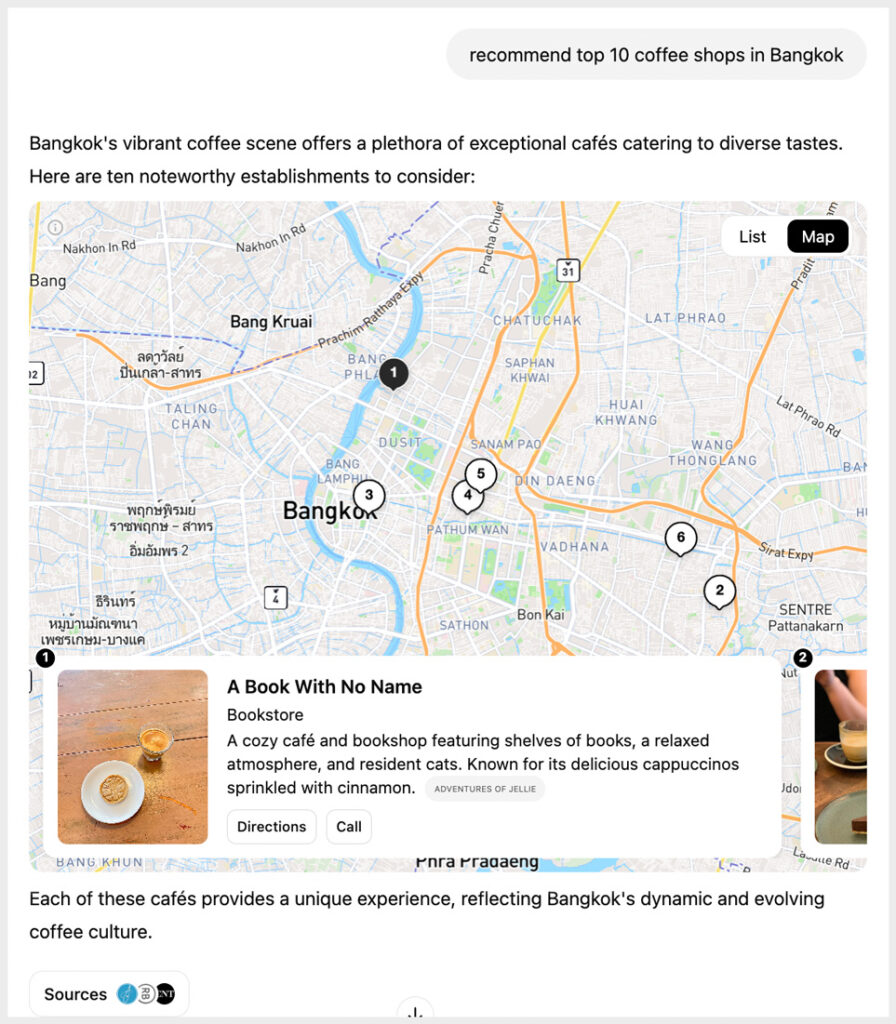As AI (artificial intelligence) tools such as ChatGPT continue to evolve, they are reshaping how users interact with information online. Unlike traditional keyword-based searches, conversational AI models prioritize context, intent, and structured content. These changes call for a fresh approach to SEO (search engine optimization), blending established practices with AI-optimized strategies.
The primary goal of SEO remains the same:
- Rank prominently on search engine results pages (SERPs) for relevant and valuable keywords
- Drive qualified traffic to the site and gain more sales
However, the emerging search functionality of ChatGPT is redefining how content is ranked and discovered. Adapting to these shifts is essential. Here are some observations to help navigate SEO for ChatGPT and improve the online visibility.
Unique Approaches to Search Results
Initially, many believed ChatGPT search would simply pull results from a single search engine, summarizing them for users. However, ChatGPT operates differently from neither Google nor Bing, relying on conversational context to provide answers. This approach differs from traditional search engines and emphasizes content uniquely meeting the specific needs of users.
To optimize for ChatGPT, we could focus on creating informative, comprehensive content tailored to natural language queries, and use tools like People Also Ask (PAA) to identify conversational search trends. ChatGPT excels in responding to natural language queries, underscoring the importance of using a conversational tone and intent-driven keywords. While its results share some similarities with Bing, ChatGPT customizes its responses by selecting trusted media sources from the search index.
Prioritizing Comprehensive Content
ChatGPT prioritizes in-depth, long-form content that thoroughly addresses user queries over brand-specific product pages. For example, when responding to a search-related query, ChatGPT is more likely to present detailed articles discussing features and comparisons rather than promoting a specific brand page, even if it ranks highly on Google.
To improve visibility, we can develop educational, value-driven articles that subtly integrate the brand’s offerings while focusing on answering user questions to establish the site as an authoritative resource. Since ChatGPT relies heavily on authoritative and trustworthy sources to generate accurate answers, collaborating with reputable niche media outlets for honest reviews and featuring products in their ranking lists can further improve credibility.
Optimize for Local Visibility
ChatGPT search provides a unique opportunity for local businesses to shine. While traditional SEO relies heavily on Google Business Profiles, ChatGPT also incorporates structured local data and reviews into its results.
Websites with properly implemented structured data can be featured in AI-driven results. To rank well in local searches, accumulating numerous authentic, positive Google reviews is essential. To enhance local SEO, we could keep the Google Business Profile up-to-date, encourage positive customer reviews to build credibility, and use structured data to ensure the site is AI-friendly.

Focus on Organic Visibility
Unlike traditional search engines, ChatGPT currently does not display ads, making it an organic, results-driven platform.
While ChatGPT provides summaries, the ultimate user experience happens on the linked site. A seamless and intuitive user experience (UX) strengthens engagement, reduces bounce rates, and builds trust. When users trust ChatGPT’s recommendations, it feels like an endorsement from an authoritative source.
To stand out in ChatGPT-driven searches, we could publish thought leadership content that establishes expertise, foster organic brand mentions on trusted websites, and emphasize E-E-A-T (Experience, Expertise, Authoritativeness, and Trustworthiness) in our content.
Preparing for the Future of Search
While AI-powered tools introduce innovation to search, they are not a replacement for traditional SEO strategies. A balanced approach integrating AI-driven insights with proven SEO practices is essential for sustainable success.
SEO still requires consistent effort to improve visibility, traffic, authority, and conversions. ChatGPT search reshapes user behavior by prioritizing intent, natural language, and comprehensive, value-driven content over product pages. Businesses must adapt by focusing on educational and trustworthy content to engage users effectively.
Local businesses can gain an edge by leveraging structured data and customer reviews, as ChatGPT values accurate, localized information. Additionally, with no ads in its results, high-quality organic content is more critical than ever. To remain competitive, businesses should adopt conversational content, optimize user experience, and highlight E-E-A-T principles.
AI tools should be seen as complements, not replacements, to traditional SEO. By blending AI insights with established practices, businesses can maintain control over traffic, conversions, and brand recognition while thriving in an evolving digital landscape.


